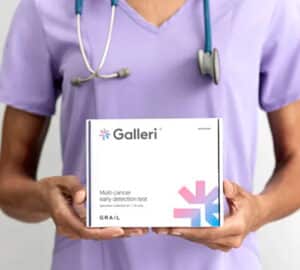inflammation treatment
A new drug compound has been designed that lessens inflammation, indicating possible future uses against autoimmune disorders such as rheumatoid arthritis. According to research from Washington University School of Medicine, the new inhibitor is more selective than other compounds designed to target the same inflammatory pathway, which may improve on current therapies. Autoimmune disorders can result from the protein p38 MAPK becoming chronically switched on and attacking the body’s own tissue. The protein drives inflammation, so drug companies developed anti-inflammatory compounds to block its signaling, but they are effective for only a limited time before the body recalibrates and inflammation returns. These therapies target the entire inflammatory pathway, but the new compound CDD-450 hits just one branch. Using mice, rats and human cells, researchers showed that CDD-450, developed by Confluence Discovery Technology Inc., reduces levels of inflammatory signaling molecules and even prevents the destruction of bones and joints in a rat model of rheumatoid arthritis. The study appears online in the Journal of Experimental Medicine.
insight into progeria
Saint Louis University researchers have uncovered new answers about why cells age rapidly in children with Hutchinson-Gilford Progeria Syndrome (HGPS). The disease is caused by a random mutation in the LMNA gene that causes the nucleus and cell to become unstable and leads to premature aging. The mutated gene contains a shortened, mutated version of the protein lamin A, referred to as progerin. In a report published in Cell Reports, the research team revealed that replication stress is a key cause of the underlying DNA damage found in the cells of children with HGPS. The disease disrupts the strategies cells usually employ to overcome obstacles and successfully continue DNA replication. SLU researchers found that progerin causes damage by stalling replication and impeding the proper protection of newly replicated DNA, which leads to loss of genetic material. They also found that progeria cells activate a series of immune responses, which further contributes to cellular decline. After demonstrating how progerin damages cells, the team looked for ways to reverse these problems. It found that vitamin D improves cellular fitness, which may lead to the development of new therapies for HGPS and help explain the processes of normal aging.
hope for opiod addiction
Researchers at Washington University School of Medicine and EPHARMIX, a St. Louis-based digital health company, say a new automated text messaging service may reduce opioid abuse and the likelihood of relapse while also decreasing treatment costs. The service sends automated text messages to patients being treated for opioid addiction that ask how the patient is feeling, if he or she is struggling and if there has been any recent drug use. There is also a panic button that can be activated for immediate help from health care workers. The app will save time usually spent monitoring patients through individual phone calls and in-person appointments, potentially decrease medical costs and allow health care workers to treat more patients. A study of 21 patients found that reported substance abuse dropped after using the app. The researchers can’t attribute the positive trend solely to using the service, but the data is encouraging. The study is published in NEJM Catalyst.








